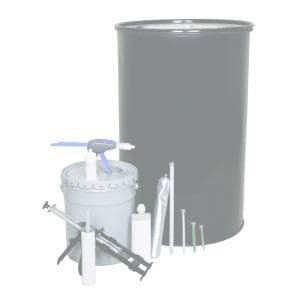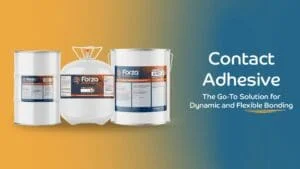What are acrylic adhesives, and how do they work?
Acrylic adhesives are structural adhesives that use acrylic resins as the base. There are numerous types of acrylic adhesives, but the uniting feature is that they all cure when exposed to air. Once exposed to air, they crosslink and change state to form a strong bond that can’t be reversed.
Acrylics are tough adhesives with high peel strength, good vibration and impact resistance, and provide reliable long-term bonding of dissimilar substrates. They can even bond through thin layers of oil! Acrylic adhesives don’t have great adhesion right away, but build strength over time. They can withstand extreme temperatures and high moisture environments, as well as a variety of other environmental conditions. They are also a great replacement for mechanical fasteners!
There are a few downsides to using these adhesives. Some contain solvents or are flammable, but there are many solvent-free and non-flammable acrylic-adhesives available – it really just depends on your application. And it is possible to use solvent-based or flammable adhesives, you just have to take the correct precautions to eliminate risks. Also, many of these adhesives have a strong odor, although there are specialty low-odor acrylics available.
Acrylic adhesives are used across many applications, and are especially good for applications where heat and cold resistance are needed, or in applications where plasticizer migration is a problem. They bond a wide variety of substrates, including many plastics and metals.
What are the different types of acrylic adhesives?
- Solvent-Based Acrylic-Adhesives
- Water-based Acrylic-Adhesives
- PSA Acrylics
- LSE Acrylic-Adhesives
- Surface-Activated Acrylic-Adhesives
- Pure Acrylic-Adhesives
- Modified Acrylic-Adhesives
- MMA (Methyl Methacrylate) Acrylic-Adhesives
- Low Odor Acrylic-Adhesives
Curious to learn more about acrylic adhesives, or how you can use them in your application? Contact us and let us know your application and the substrates you’re bonding, as your ally we would love to guide you through to adhesive success!




